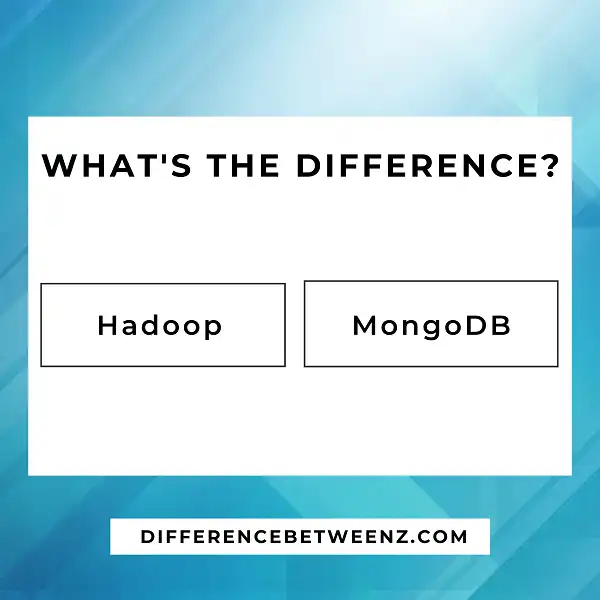In the ever-evolving landscape of Big data analysis and storage, it can be difficult to decide between two popular tools: Hadoop and MongoDB. While both are useful for different applications, they have their own distinct advantages and drawbacks. Below we’ll discuss in detail the differences between Hadoop and MongoDB so you can know which one is best suited for solving your business problems.
What is Hadoop?
Apache Hadoop is an open-source software platform for distributed storage and distributed processing of large data sets across clusters of computers, using a simple programming model.
- Hadoop offers two primary components: the Hadoop Distributed File System (HDFS), which distributes large tasks across a number of nodes and crunches enormous amounts of data; and MapReduce, a parallel programming system that automates the process of sorting and processing data.
- Hadoop can scale up quickly to handle petabytes of data, making it an ideal choice for analyzing large amounts of structured, unstructured, sensor-generated, transactional, and real-time data.
- With Hadoop has become increasingly popular in recent years, many organizations are finding value in using Hadoop’s powerful software platforms to store and manage their vast datasets as well as run analytics on them.
What is MongoDB?
MongoDB is a document-oriented, cross-platform NoSQL database system designed to store and manage large amounts of data. MongoDB is becoming increasingly popular since it provides scalability, consistency, and high performance when managing big datasets. MongoDB also offers a wide range of features such as automatic sharding of data, object modeling, indexing, and dynamic queries.
With MongoDB, developers can easily create applications that are flexible to changing requirements by quickly scaling up or down their database systems. MongoDB’s ease of use makes it attractive for users from all backgrounds, from data analysts working with small datasets to developers building enterprise web apps requiring massive scalability.
Difference Between Hadoop and MongoDB
Hadoop and MongoDB are two big data solutions servicing different use cases.
- Hadoop is a framework that stores large amounts of data in the Hadoop Distributed File System (HDFS) and runs distributed applications across multiple computers.
- It is well suited for data-intensive workloads like batch processing, and analytics and transforms large volumes of disparate data into organized information.
- MongoDB on the other hand is a document-oriented NoSQL database offering fast development cycles, dynamic schema, and easy scalability to effectively store a high volume of rapidly changing data.
Both Hadoop and MongoDB offer competitive solutions when it comes to managing vast amounts of data but depending on the type of workload, one may be better suited than the other.
Conclusion
Hadoop and MongoDB are two of the most popular databases. Hadoop is a traditional relational database while MongoDB is a document-oriented database. Both have their own advantages and disadvantages. It all depends on your needs and which one you should choose.


